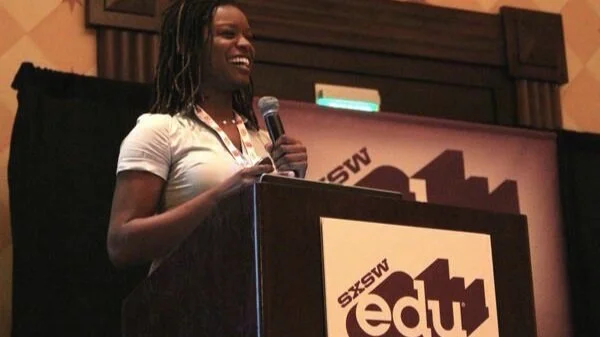
In this special release episode, Just Science sat down with Kristin Henning, Director of the Juvenile Justice Clinic and Initiative at Georgetown Law and Author of The Rage of Innocence: How America Criminalizes Black Youth, to discuss the biases that exist in the American criminal legal system, which disproportionally and negatively impact teenagers of color. Decades of developmental psychology research supports that adolescence is a period marked by risk-taking behaviors, experimentation, and susceptibility to peer influence. While these features of adolescence are normal for all teenagers, teenagers of color are disproportionately punished by the American criminal legal system for behaviors that are developmentally appropriate. Listen along as Professor Henning describes what typical adolescent behavior looks like, the depiction of adolescence and race in the media, and the movement to better inform criminal legal system practitioners about this unique developmental period.
Harnessing Data for Transformation | August 2022
This panel discussed why data is so crucial to efforts to transform youth justice systems and the way we think about justice for young people, how data has been used in past transformation efforts, and some key ways that other leaders can use data (and how to do it).
Just Reforming Pretrial Policies | March 2022
In episode one of our Community Relations season, Just Science sat down with Monica Sheppard, a research analyst, and Dr. Yamanda Wright, a research psychologist in RTI’s Transformative Research Unit for Equity (TRUE), to discuss reforming American pretrial policies.
Researchers have closely followed the racial and economic disparities that exist in American incarceration, particularly surrounding pretrial detention. Supported by Arnold Ventures, Advancing Pretrial Policy and Research (APPR) seeks to improve pretrial outcomes by investing in research, technical assistance, and implementation across a range of partner sites nationwide. Listen as Monica and Yamanda discuss racial and socioeconomic disparities in the pretrial system and ways APPR is working to address them in this episode of Just Science. This episode is funded in part by RTI’s Applied Justice Research Division and Advancing Pretrial Policy and Research, supported by Arnold Ventures.
COVID-19 & Communities: Positively Engaging and Supporting Youth & Families | June 2020
Panelists discussed a number of topics related to COVID-19, youth, and their communities. These topics included positive youth engagement during social distancing, the pandemic's impacts on supports and services, health impacts, and interactions with--and the role of--law enforcement and justice systems.
ALLEN LIPSCOMB, California State University Northridge
DAVID HUREAU, University at Albany, School of Criminal Justice
LAURA TINAJERO, National Compadres Network, Building Healthy Communities (BHC)
MMA AMARA EKERUCHE, Center for the Study of the Economies of Africa
YAMANDA WRIGHT, RTI International, Youth, Violence Prevention, and Community Justice Division
Deconstructing School Discipline | Science Friday Podcast, April 2014
In March 2014, the U.S. Department of Education Office for Civil Rights released a report on school discipline, which highlighted rates of out-of-school suspension. It found that students of color face disproportionately higher rates of this type of suspension than white students—in fact, black students are three times more likely to get suspended than white ones. Also at higher risk of being removed from school, or even being placed in seclusion, are students with disabilities. A number of researchers have questioned the efficacy of punitive punishments, such as out-of-school suspension and expulsion, to alter student behavior.